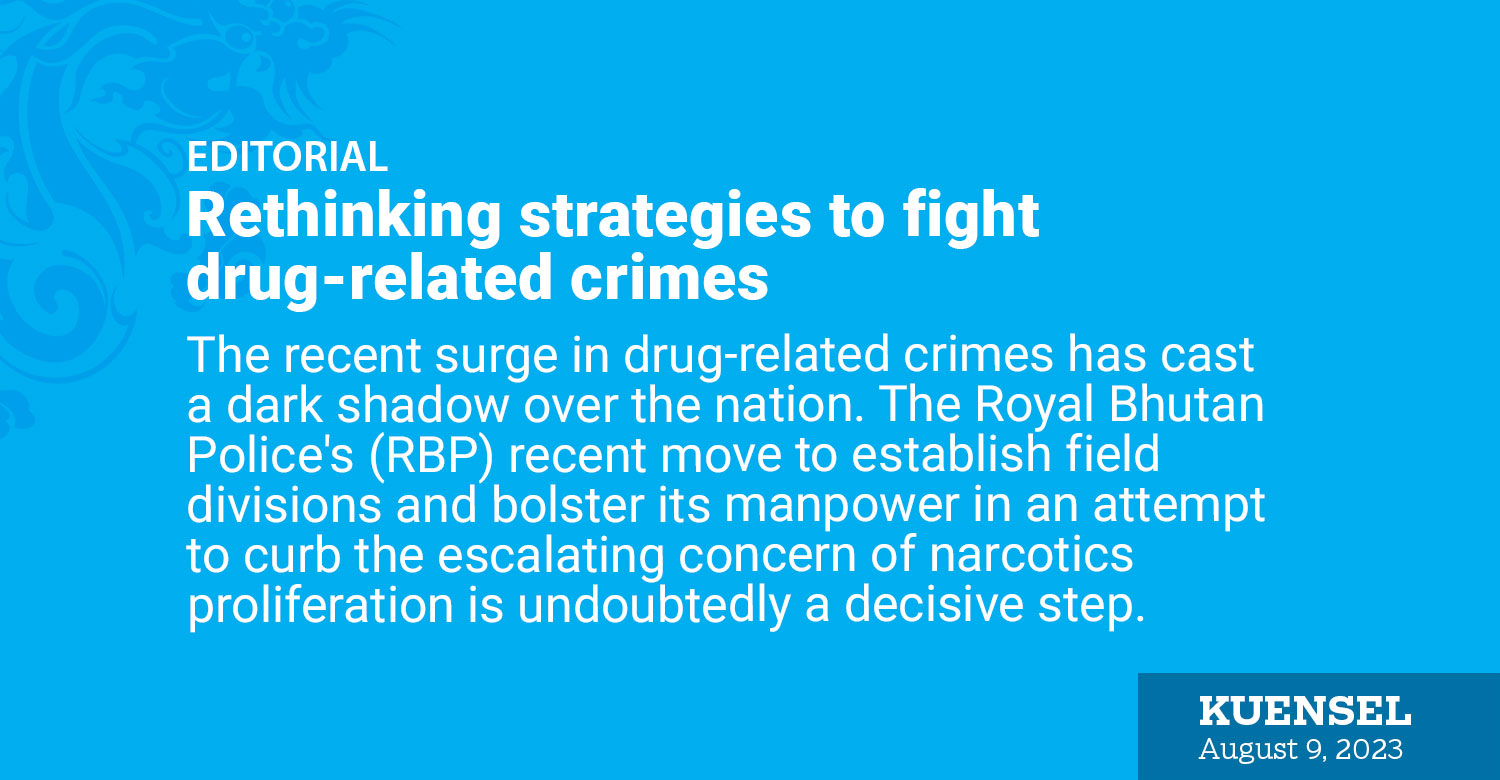The recent surge in drug-related crimes has cast a dark shadow over the nation. The Royal Bhutan Police’s (RBP) recent move to establish field divisions and bolster its manpower in an attempt to curb the escalating concern of narcotics proliferation is undoubtedly a decisive step. However, it is becoming increasingly clear that the name and shame strategy alone is inadequate in addressing the multifaceted nature of this issue. As we delve deeper into the complexities of the situation, it becomes evident that a more comprehensive and multifaceted approach is needed to effectively combat drug-related crimes.
The numbers speak for themselves: 1,764 individuals intercepted and 953 drug-related cases reported so far this year. This alarming statistic should serve as a wake-up call for Bhutanese authorities to re-evaluate their strategies and invest in innovative and proactive measures. To truly make headway, a holistic strategy that combines law enforcement, education, rehabilitation, and community engagement is paramount.
First and foremost, law enforcement efforts must be complemented with an emphasis on intelligence gathering and international collaboration. The establishment of field divisions and increased manpower is an essential component, but it must be coupled with advanced training and technology to effectively intercept drug trafficking networks at their source. Investing in cutting-edge surveillance, forensic analysis, and collaboration with neighbouring countries can significantly disrupt the supply chains that feed the drug trade. More importantly, no vehicle should be exempt from routine check.
Education plays a pivotal role in shaping societal attitudes towards drugs. Instead of merely relying on punitive measures, we must invest in comprehensive drug education programmes which should inform students about the dangers of narcotics, empower them with critical thinking skills, and provide them with the tools to resist peer pressure.
Rehabilitation is equally crucial in the fight against drug-related crimes. It is all too easy to perceive individuals involved in drug activities as irredeemable criminals. However, many of these individuals are victims themselves, ensnared by addiction and socioeconomic hardships. Establishing well-equipped rehabilitation centres that offer counselling, vocational training, and support can provide a second chance for these individuals to reintegrate into society as productive citizens.
By addressing the root causes of drug abuse, we can break the cycle of crime and addiction.


